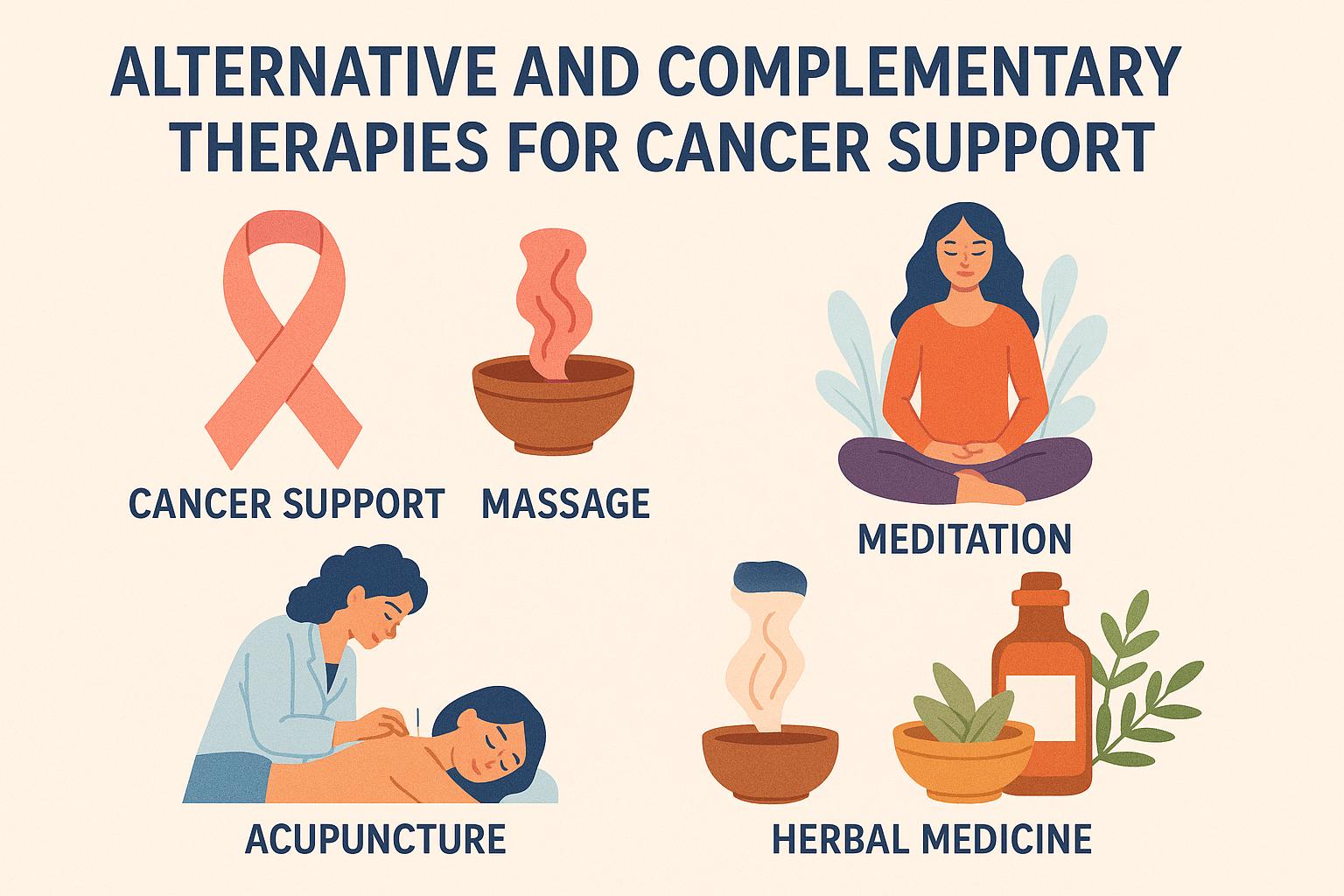Understanding Alternative and Complementary Therapies in Cancer Support
Dealing with a cancer diagnosis is a life-altering experience, often prompting individuals to explore various treatment avenues to improve their chances of recovery and enhance their quality of life. Among the myriad options available, alternative and complementary therapies present interesting possibilities. These therapies can serve as additional support to the more conventional treatments like surgery, chemotherapy, and radiation therapy. It is crucial, though, to distinguish between alternative therapies—utilized as substitutes for conventional treatments—and complementary therapies, which are employed alongside standard medical practices to enhance overall care.
Herbal Remedies
For many centuries, humans have relied on herbal remedies to manage a variety of health issues and improve overall health and well-being. In the context of cancer support, herbs such as echinacea, ginger, and turmeric are commonly cited. These herbs are reputed for their anti-inflammatory and immune-enhancing properties, offering possible benefits to individuals undergoing cancer treatment. Nonetheless, the use of herbal remedies warrants careful consideration and discussion with healthcare professionals. This is essential because certain herbs can potentially interact with conventional cancer treatments, either diminishing their effectiveness or exacerbating their side effects. Therefore, informed usage is key.
Acupuncture
Acupuncture, rooted in traditional Chinese medicine, is a practice that involves the insertion of very thin needles into strategic points across the body. This therapy has gained recognition as a method to alleviate certain symptoms associated with cancer and its treatment, notably nausea and pain. There is evidence suggesting that acupuncture can offer significant improvements in the quality of life of cancer patients, particularly by mitigating chemotherapy-induced nausea and vomiting. Those interested in delving deeper into the clinical findings and benefits of acupuncture in the context of cancer can visit the National Cancer Institute website for comprehensive information.
Mind-Body Practices
The integration of mind-body practices into cancer care is garnering increasing attention. These practices hold potential in aiding patients to manage the psychological and emotional challenges posed by cancer and its treatment. Techniques such as meditation, yoga, and tai chi are exemplary in promoting relaxation, reducing stress, and enhancing mood. A growing body of research underscores the effectiveness of these practices in diminishing anxiety and depression among cancer patients, allowing them to navigate their treatment journeys with greater ease and resilience.
Nutritional Therapies
Nutrition assumes a pivotal role in cancer support, with particular diets and nutritional components offering potential benefits to cancer patients. Diets abundant in fruits, vegetables, and whole grains are often recommended, given their rich antioxidant content. Antioxidants are instrumental in alleviating oxidative stress, a condition often linked to cancer progression. Some patients consider nutritional supplements as part of their care regimen. However, it is imperative to seek professional dietary guidance to ensure that these supplements are compatible with existing cancer treatments and to prevent adverse interactions or side effects that may compromise the effectiveness of conventional therapies.
Massage Therapy
Massage therapy is emerging as a valuable complementary approach in managing symptoms associated with cancer and its treatment. This practice involves the manipulation of soft tissues in the body, potentially helping to alleviate pain, fatigue, and anxiety while augmenting the patient’s overall quality of life. Clinical guidelines generally support the integration of massage therapy into cancer care, provided that there is prior approval from healthcare providers. More detailed information regarding the role and benefits of massage therapy within cancer care frameworks can be accessed on the American Cancer Society website.
Considerations and Precautions
Before embarking on any alternative or complementary therapy, it is essential for cancer patients to engage in thorough consultations with their healthcare teams. Such a collaborative and holistic approach ensures that the therapies chosen are safe, supported by evidence, and seamlessly integrable with existing cancer treatments. While some alternative and complementary therapies show real promise, further rigorous research is necessary to establish unequivocal standards of safety and efficacy. Patients should make informed decisions, guided by robust scientific evidence and thorough professional advice.
Final Thoughts
Alternative and complementary therapies can play supportive roles within the broader spectrum of cancer care. As ongoing research continues to unfold, both patients and healthcare practitioners are increasingly empowered to make well-informed decisions concerning the incorporation of these therapies. The ultimate objective is to enhance the well-being and treatment outcomes of individuals battling cancer, allowing them to lead healthier, more fulfilling lives in the face of their diagnosis and beyond.
This article was last updated on: September 16, 2025

